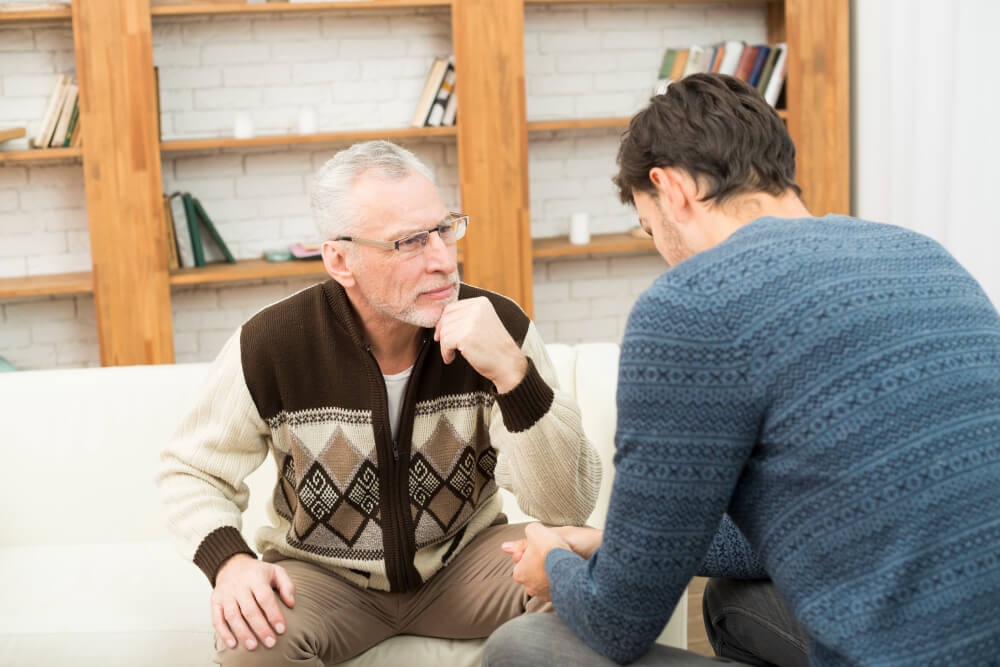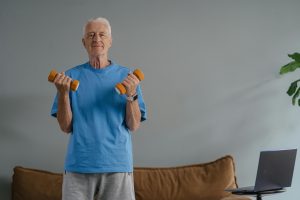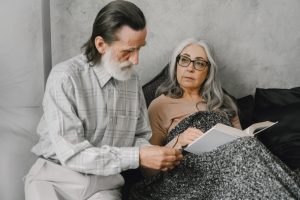In the challenging journey of caregiving, few incidents evoke worry as the moment a loved one with Dementia falls.
Various questions flood the minds of caregivers: “Why did this happen?” “What were the contributing factors that led to such accident and more.”
But instead of dwelling on guilt or self-blame, the caregivers must seek professional guidance and provide compassionate care to the loved ones.
In this exploration, let’s uncover the intricate relationship between Dementia and falls and the cognitive and physical challenges loved ones face when they fall.
The Impact of Dementia on Mobility
Dementia is a condition that affects an individual’s mobility. The movement of an individual becomes jerky and leads the one to fall. An individual feels less steady in the early and mid stages, but in the later stages, support is needed while walking.
Why Falls Happen to Dementia Patients?
Dementia causes damage to the brain parts. The motor & premotor cortex, the limbic system, coordinates signals to the muscles to carry out activities such as sitting down, walking, turning around, and more. An individual often falls when Dementia impairs these processes.
Common Risk Factors that predispose dementia patients to falls
Dementia affects the memory functions and physical abilities of an individual. The risk of falls stands out as a significant concern for caregivers as it can lead to serious consequences such as injuries, which may require hospitalization and affect the overall quality of life. The common risk that contributes to falls are:
Cognitive Decline and Impaired Judgment
As Dementia progresses in an individual, confusion and impaired judgment are common. The changes in the brain lead to an increase in the likelihood of accidents and falls. In addition, it can also result in increasing cognitive decline and depression.
Gait and Balance Disturbances
Dementia impacts an individual’s ability to walk. It makes it challenging for an individual to maintain balance, which leads to postural instability and makes them stumble over obstructions in the path—the momentary loss of balance results in a fall.
Environmental Hazards
Slippery floors, unfixed rugs, and insufficient lighting increase the fall risks in individuals with Dementia. By implementing proactive measures and creating a safe and supportive environment, caregivers can enhance the well-being of individuals with Dementia.
Muscle Weakness
Individuals with Dementia have muscle weakness, which affects their physical strength to a more considerable extent. The physical deterioration affects their ability to walk. Implementing strength and balance exercises maintains muscle functions and reduces the risk of falls.
Sensory Impairments
Vision and hearing loss impairments make it challenging for individuals to perceive and respond to the environment. By prioritizing regular sensory evaluations, caregivers can reduce the risk of falls among individuals with Dementia.
Consequences of Falls for Dementia Patients
- Physical Consequences: Falls in individuals with Dementia result in a range of physical injuries. Minor injuries or fractures in an individual can lead to hospitalization for prolonged periods.
- Emotional and Psychological Impact: An individual with Dementia experiences fear and anxiety after a fall. The loss of confidence in an individual leads to social withdrawal and a decline in overall well-being.
- Loss of Independence: Falls are emotionally distressing to individuals with Dementia and caregivers. The individuals require assistance, which often results in a loss of independence.
Strategies to Prevent Falls in Dementia Patients
You can use the below-mentioned strategies to help your loved in cope with memory loss.
- Exercise Often: Weak muscles in individuals with Dementia contribute to falls. Therefore, engaging in regular exercises improves the muscle strength of individuals with Dementia. It improves balance and coordination in the individuals and helps in preventing falls.
- Check Environmental Conditions: Caregivers must ensure enough room lighting to prevent visual difficulties. Individuals with Dementia mostly misinterpreate with the things they see. Home modifications improve safety and decrease fall risks.
- Improve Mental Functioning: Impairments in mental functioning increase fall risk. So, engaging in memory games improves the mental functioning of an individual with Dementia.
- Be Careful When Standing or Sitting: The blood pressure drops when you quickly stand up from bed. Insufficient blood circulation in the brain may lead to falls. So, caregivers must get up and move slowly.
- Use Proper Footwear: Unfitted footwear and slippers can affect an individual’s balance, which may lead to falls. Ensure that your footwear is appropriate for indoor and outdoor conditions.
- Eating Healthy: Poor eating habits may lead to several vitamin and mineral deficiencies. Eat a healthy diet rich in B12 vitamins, omega-3 fatty acids, and antioxidants.
- Lower Noise Levels: An individual with Dementia has increased sensitivity to noise. Too much noise levels cause anxiety and restlessness, which makes an individual with Dementia unsteady on their feet.
Wrapping Up
The caregiving journey for loved ones with Dementia is full of challenges. Among all, the most distressing is when incidents like falls happen because Dementia impacts an individual’s mobility and cognitive functioning. However, with proper care and professional assistance, the risk of falls can be minimized.





